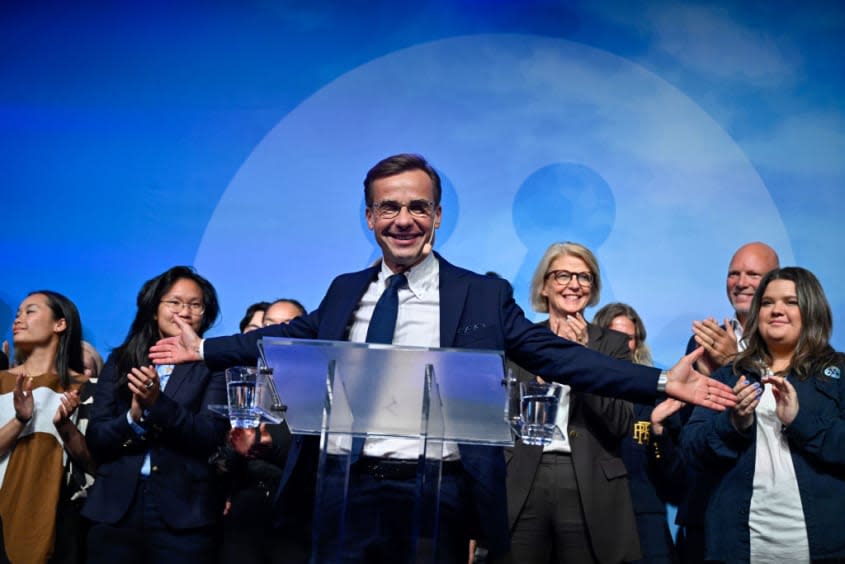Sweden's prime minister resigns as conservative bloc wins narrow control of Parliament

- Oops!Something went wrong.Please try again later.
- Oops!Something went wrong.Please try again later.
Swedish Prime Minister Magdalena Andersson said she will resign on Thursday after near-complete election results Wednesday showed her center-left bloc narrowly losing to a group of right-wing parties. Andersson's Social Democrats won the largest share of votes — 30.1 percent — in last Sunday's election, but her coalition took 173 seats in the 349-seat Parliament, while the bloc of four conservative parties won 176 seats, according to preliminary results.
The next government will likely be headed by Ulf Kristersson, whose Moderate Party led the last conservative government for eight years until the Social Democrats bloc won back control in 2014. The Moderates placed third overall this round, with 19.1 percent of the vote, but the No. 2 party, the far-right Sweden Democrats, doesn't have the support of the other parties in the right-wing coalition, the Christian Democrats and Liberals.
While backing from the Sweden Democrats "will be essential to the right-wing bloc maintaining its majority bloc in Parliament," The New York Times reports, "it is unlikely to be a formal part of the new government."
The Sweden Democrats party, which formed in 1988 with roots in Nazi ideology, has steadily gained electoral ground since first winning seats in Parliament in 2010. Its showing in this election, 20.6 percent, was a slight improvement from the 17.5 percent it won in 2018. It has been a pariah in Parliament.
Sweden Democrats leader Jimmie Akersson has tried to soften the party's public image in recent years. The party campaigned on ending immigration, repatriating some immigrants, and fighting violent crime, but it also recently reversed its opposition to joining NATO and dropped its pledge to leave the European Union. "Now we will get order in Sweden," Akesson wrote on Facebook on Wednesday.
"I know that a lot of Swedes are concerned," Andersson said of the Sweden Democrats' rise. "I see your concern and I share it."
Kristersson said Wednesday he is "ready to do all I can to form a new, stable, and vigorous government for the whole of Sweden and all its citizens." But with such a narrow margin and an ideologically disparate coalition, "it will be a very fragile situation for Swedish parliamentary democracy for the next four years," University of Gothenburg political scientist Soren Holmberg tells the Times.
You may also like
How an old-school Georgia D.A. could prosecute Trump like a crime boss
Stray kitten inspires company to redesign its packaging for the better

